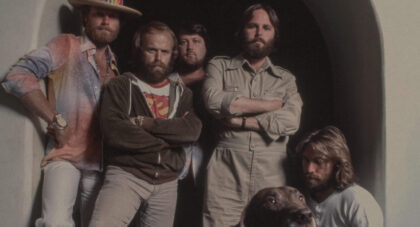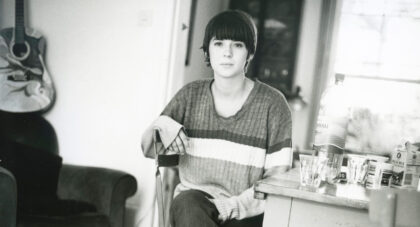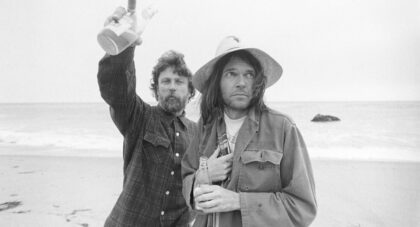(Diversions, a recurring feature on Aquarium Drunkard, catches up with our favorite artists as they wax on subjects other than recording and performing.)
I started the Diversions feature earlier in the year in an effort to create a forum on AD for artists to discuss topics outside the realms of what we typically read about in interviews, reviews and/or profiles. Today's entry, courtesy of Division Day's Kevin Lenhart, is a perfect example. The band's sophomore LP, Visitation, is out now via local outfit Dangerbird Records. Division Day kick off their tour tomorrow night, in Los Angeles, at Spaceland.
* * * * * * * * * * * * * * * * * * * * * * * * * * * * * * * * * * * * * * * * * * * * * * * * * * * * * * * * * * * * * * *
Navigating Sustainability: I’m wary of bringing up the issue of sustainability in conversation. It is something I have gone to great lengths to educate myself about, and for that reason, I run the risk of sounding like I’m lecturing people whenever the topic is broached (Brief bio: I have done a good deal of reading on sustainable economics, restorative industrial practices, and green urban development. I’ve also attended several green building and design expos, become certified as a LEED green building inspector, and currently work with a national sustainability advocacy group developing a center to help people adopt more ecologically benevolent lifestyles). I don’t like to get up on a soapbox and decry all the bad that surrounds us. That does more harm than good; environmentalists already suffer enough contempt, a good deal of it deserving, from people who have had run-ins with arrogant hippies or self-righteous Prius owners (nothing wrong with a Prius, but it isn’t going to save the world, and yippie snobbery is bullshit).
This leads me to my point for this piece: before meaningful progress toward environmental restoration can occur, the people driving the sustainability movement must sort out their public relations dilemma. At the most fundamental level, we all need to be using less. That means less food, energy, water, which in turn means smaller houses, fewer possessions, no more lawns, way less meat-eating, way less travel, etc. If one asks “What can I do to reduce my impact on the planet?” they will be answered with a seemingly infinite list of long-enjoyed comforts that they must now voluntarily forswear. Furthermore, many ecologically sound lifestyle changes end up costing a person more money than they are accustomed to paying (at least initially; energy bill savings and cultural and physical health benefits will accrue over time and generally cancel out the added up-front costs of buying more sustainable appliances, organic food, natural cleaning products and the like, but that immediate sting at the register is a tough hurdle to get over).
Continue reading after the jump.....
Only the good shit. Aquarium Drunkard is powered by its patrons. Keep the servers humming and help us continue doing it by pledging your support.
To continue reading, become a member or log in.


